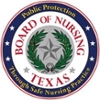About Us
 The University of Texas Rio Grande Valley (UTRGV) School of Nursing (SON) offers five programs: a Bachelor of Science in Nursing (BSN) degree, three Master of Science in Nursing (MSN) degrees, and a Doctor of Nursing Practice (DNP) degree. The Bachelor of Science in Nursing program is approved by the Texas Board of Nursing.
The University of Texas Rio Grande Valley (UTRGV) School of Nursing (SON) offers five programs: a Bachelor of Science in Nursing (BSN) degree, three Master of Science in Nursing (MSN) degrees, and a Doctor of Nursing Practice (DNP) degree. The Bachelor of Science in Nursing program is approved by the Texas Board of Nursing.

The BSN, MSN, DNP, and the Post-Graduate APRN Certificate Programs at UTRGV are accredited by the Commission on Collegiate Nursing Education, One Dupont Circle, NW, Suite 530, Washington, DC 20036, 202-887-6791.
Conceptual Framework
The conceptual framework of the UTRGV School of Nursing (SON) curriculum contributes to the development of the course content to advance the knowledge, skills, and attitudes of all its graduates. Grounded on the SON philosophy and mission, the curriculum is centered on the belief that the role of the nurse is to assist the person/family/community in developing their full potential to enhance wellness, prevent illness, promote self-care for optimal health, or cope with dying and death. In accordance with professional nursing standards and evidence-based guidelines for practice, the SON degree programs emphasize preparation of students to meet the dynamic needs of the international, multicultural, and multilingual society of the Rio Grande Valley. The curricula promote the development of advanced critical thinking and inter-collaborative skills to be used in conceptualizing, synthesizing, and evaluating nursing and health care. Graduates use skill, theory, research, and a knowledge base at entry level through advanced roles within various settings. Grounded in education in the liberal arts and basic sciences, the curricula of the undergraduate programs introduce concepts and develop students for entry level, evidence-based professional nursing practice. The curricula of the graduate programs assume an undergraduate base in nursing, physiology, pharmacology, and health assessment. It complements the UTRGV Bachelor of Science in Nursing (BSN) degree program in that both have an emphasis on health, its promotion, maintenance, and/or restoration. The major thrust is toward advanced practice in which the graduate is prepared to assume responsibility and accountability for health promotion, assessment, diagnosis, and management of problems across the lifespan. All programs place a strong emphasis on critical thinking and the development of sound clinical decision-making skills including clinical reasoning.
There are eight major concepts related to the central belief integrated throughout the nursing curriculum at UTRGV. These concepts are:
- The individual as a holistic being
- Society as multicultural and diverse
- Wellness and illness as a continuum
- Nursing as a critical thinking, problem-solving process
- Research and evidence-based practice
- Inter-Professional Practice
- Education as a facilitator of change
- Leadership
The individual, as a holistic being, is composed of unique integrated physiological, psychological, spiritual, cultural, and social characteristics. This individual is involved in a dynamic interaction with internal and external stimuli throughout the lifespan and, as a result, is constantly establishing and reestablishing equilibrium. The aim of holistic nursing care is to interact effectively with the whole client, a total person, who is an expert on self. Using the holistic concept in the curriculum differentiates nursing from other health professions by virtue of its approach to the entirety of individuals and health.
Society is composed of individuals interrelating with one another, each from different cultural, ethnic, and environmental settings. Culture is composed of the values, behaviors, beliefs, and ideas shared by a group of individuals within society. The presence of many social groups, each with its unique culture, makes society multicultural and diverse. The nurse integrates multicultural concepts into areas of practice to individualize care and assist the client in promoting self-care.
Since the health status of an individual or group is a changing phenomenon, it may be viewed on a wellness-illness continuum. On this continuum, individuals and groups respond to multiple stimuli by maintaining their present health status, moving toward increased wellness, or moving toward increased illness. This perspective necessitates the application of the holistic concept to individualized client care.
As a caring profession, nursing is built upon a theoretical base and implemented through the nursing process. The nursing process encompasses a collaborative nurse-client assessment of needs, analysis of those needs, development of nursing diagnoses, planning based on the diagnoses, implementation of the nursing care plan, and evaluation of the goals. The nursing process incorporates critical thinking, which leads to creative and intellectual practices.
Research and Evidence-Based studies serve as a basis for the analysis and decision-making involved in the nursing process. The nursing process is integrated throughout the curricula and is applied from the most fundamental nursing action to complex decision-making in meeting client needs and/or managing client care. Nursing focuses on a critical thinking process that is founded on concepts and principles leading to creative and intellectual processes.
Interprofessional Collaboration and Practice is defined as "when multiple health workers from different professional backgrounds work together with patients, families, caregivers, and communities to deliver the highest quality of care. It is based on the concept that when providers consider each other's perspective, including that of the patient, they can deliver better care.
Education facilitates change as evidenced by the student's intellectual and professional growth. Cognitive, psychomotor, and affective behaviors change as a result of the teaching-learning process. The learning environment incorporates the principles of adult learning to promote the development of advanced critical thinking and inter-collaborative skills which may be used in conceptualizing, synthesizing, and evaluating the management of nursing and health care problems. Teachers encourage students to be critical thinkers, active participants, client advocates, and self-directed learners.
Leadership in nursing further develops the previous seven concepts. Nursing leadership is defined as influencing others to improve the quality of care along with direct participation in clinical care. Specifically, leadership in health care is a fundamental skill that allows the nurse to navigate the complex healthcare system effectively in solving problems and making decisions related to the client as a holistic being in a multicultural environment at any point in the wellness-illness continuum. Nurses, as part of the health intra-disciplinary team, must be capable of leading healthcare teams and using effective communication to coordinate and manage care.
In the development of all School of Nursing programs/courses, pervasive and progressive concepts provide the framework and direction for the course objectives and content. Pervasive concepts are utilized throughout all program curricula and consist of the individual as a holistic being, society as multicultural, wellness and illness as a continuum, nursing as a problem-solving process, care that is evidence-based, nursing as part of the healthcare team, nurse as a leader in health care, and education as a facilitator of change. Progressive concepts are those that are introduced with the first BSN courses and developed throughout the undergraduate and graduate curricula.

